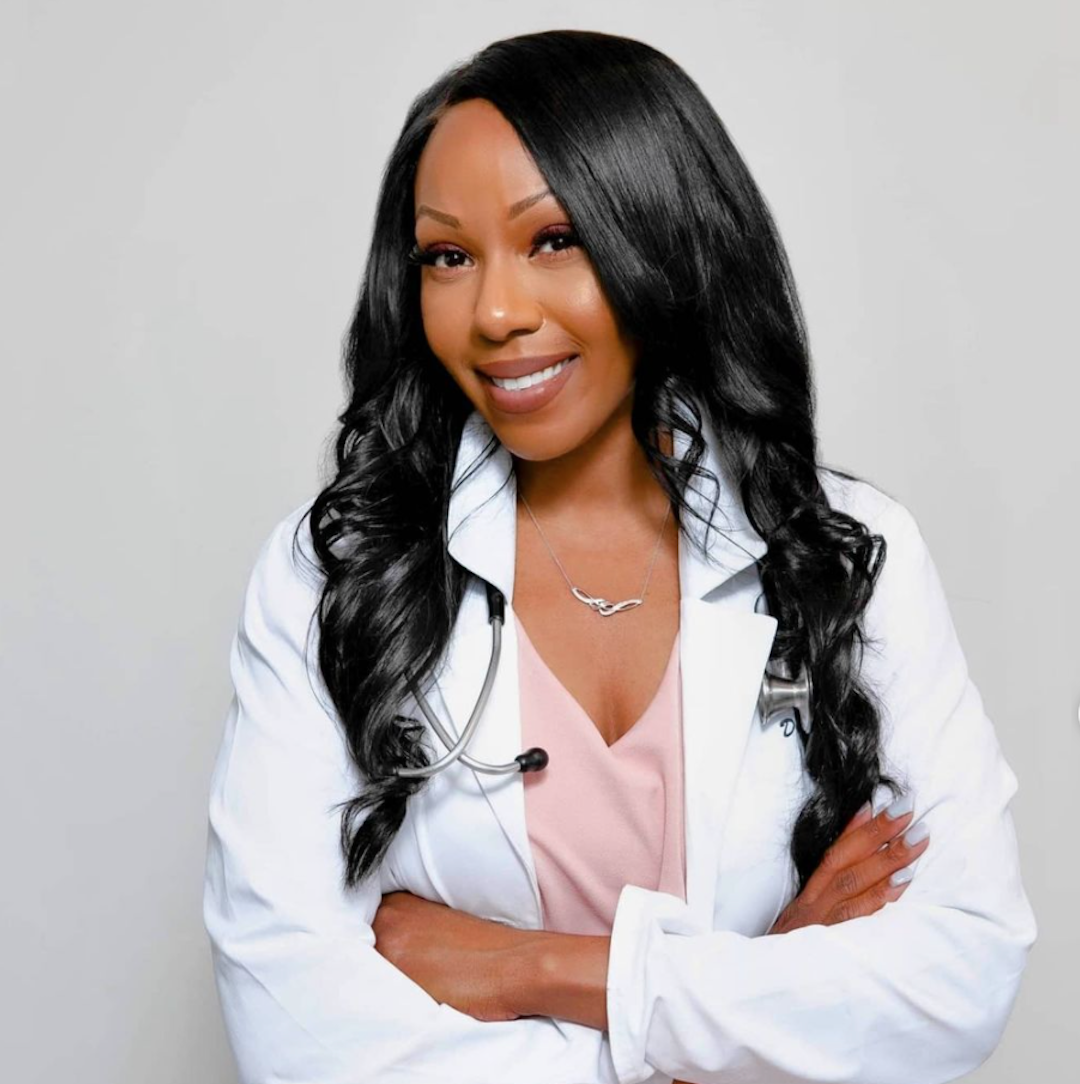
Inhale Exhale
Dr. Angela Holliday-Bell Talks Insomnia
Dr. Angela Holliday-Bell is familiar with insomnia. Having experienced many sleepless nights herself, she was inspired to become a certified sleep specialist and help others achieve better ZZZs. At The Solution is Sleep, her online sleep clinic, she employs cognitive behavioral therapy to combat insomnia and improve overall health and happiness. Read on for some of her top sleep tips…
As a doctor and certified sleep specialist, how important is sleep to our overall health and wellbeing?
Sleep plays a significant role in overall health and wellbeing. Good quality sleep is just as important to health as adequate nutrition and exercise. Good sleep helps to ensure that your immune system is functioning adequately to fight off infections and respond to vaccines. It helps to regulate your metabolism and mood and allows your muscles and tissues to repair themselves and rebuild. Poor quality sleep and insomnia can lead to cardiovascular disease, increase your risk of getting sick and make you more likely to suffer from anxiety and depression.
You are no stranger to insomnia yourself. Can you speak to your experience, the sleep research you conducted surrounding this struggle, and what inspired you to start The Solution is Sleep?
I have always had a deep personal love for sleep and have always needed a lot of it. When I was a teenager and in college, I was able to sleep anywhere, anytime and often enjoyed many nights of 10+ hours of sleep. However, as I went through my medical training I started to have sleep issues and really suffered from insomnia. The constant changing of schedules with overnights and 28hr shifts really made it difficult for me to adhere to any kind of good sleep hygiene. What was really eye opening for me was not just the increased tiredness/fatigue I felt as a result, but also the negative toll it took on both my physical and mental health. I felt a lot more irritable and anxious. I felt more mentally fatigued and foggy. I also found myself less motivated to do things like be active and complete tasks. I knew I had to make a change because I wasn’t being the version of myself that I had envisioned I would be at that point in my life, and I knew my lack of sleep was the issue.
So, I started to do my own research and studying about the importance of sleep and how to cure insomnia. I read a number of books on the physiology and function of sleep. I wanted to know first why we sleep and then what I could do to improve it. I started to apply what I learned to my own sleep and saw what a significant difference it made in my life. I then started to work in the sleep medicine clinic in my hospital to gain more experience with pediatric sleep issues. Along the way, I had multiple family members, friends and patients come to me with sleep issues and I realized that it was a much bigger issue than I thought and that I wasn’t the only one who was suffering with insomnia.
From that point I knew it was important to share the information I learned and help everyone live healthier lives through better sleep. I started my blog thesolutionisleep.com to help spread information to the masses. After I saw how much I was able to help other people, I decided to make it an official part of my career and become certified as a sleep specialist so that I could help more people with more complicated sleep issues. I started my instagram thesleep_md for the same reason, but I also wanted to reach people who might not otherwise seek help for their sleep issues. With my social media platform I am able to meet people where they are and provide education, while also providing a glimpse into my personal life
At The Solution is Sleep, you help clients overcome sleep woes by engaging in behavioral sleep therapy techniques. Any techniques that you suggest we incorporate into our nightly ritual?
One cognitive behavioral therapy technique that I would recommend for anyone struggling with sleep issues is one called stimulus control. Put simply, this means using your bed for sleep (and sex) only. You should avoid doing other things such as talking on the phone, looking at television, answering work emails, etc, because this weakens the relationship that your mind has between your bed and sleep, and can make it more difficult to fall asleep at night. The same is true if you struggle with long middle of the night awakenings. If you are lying awake in bed for more than 15 minutes, you should get up and out of bed. The longer you lie in bed awake, the more your mind starts to connect your bed with being awake rather than sleep.
Often times people who struggle with sleep opt to engage medical sleep aids. Why would you recommend sleep therapy instead?
I would definitely recommend sleep therapy as opposed to medical sleep aids. Sleep aids tend to just put a bandaid over the problem instead of fixing the actual cause. And prescription sleep pills don’t recreate the actual physiology and architecture of natural sleep. They put you into more of a sedative state so you often don’t wake up feeling refreshed and you don’t reap all of the restorative benefits of natural sleep.
Cognitive behavioral therapy for insomnia, which is the type of therapy I offer for most of my patients, is so effective that it is actually the number 1 recommended treatment for insomnia (over prescription pills) and has been found to have much longer lasting effects than sleep aids as well.
What do you most often find to be the root cause of sleep struggles?
When it comes to poor sleep, there are often a number of factors that contribute rather than just one. However, I find that the biggest mistake people make when it comes to sleep habits is not keeping a consistent bed/wake time. Many of us have a consistent schedule when it comes to the weekday usually due to work, but on the weekends we tend to go to sleep much later and wake up later too. This makes it much harder to transition to earlier sleep and wake times during the week and is essentially equivalent to trying to recover from jet lag every single week. So one of the best things you can do for your sleep is keep a consistent bed and wake time within 1 hr each day.
I always tell my clients that the biggest way to improve sleep health is to start by prioritizing your sleep. Too many people leave sleep as a last minute thing that they do at the end of the night and expect that it will go well. And while that might be okay for some, for many it leads to frustrating nights of restless sleep.
What’s next for The Solution is Sleep?
The sky’s the limit when it comes to sleep health! I plan on writing more and participating in more panels/conferences to help educate people on the importance of sleep. I plan to offer my services to a wider range of people and get people living happier and healthier lives one consultation at a time. I also plan to use my platform to highlight racial disparities when sleep issues/disorders to help narrow the gap when it comes to sleep health.
RAPID FIRE ROUND:
Do you have a bedtime ritual?
Definitely! I go to bed at the same time every night, including the weekends. Sometimes I will extend it by 1 hr but I try hard not to delay it any more than that. I turn down all the overhead lights using my light dimmers. I turn on soothing music while I do my skincare routine. I then do 10 to 15 minutes of light reading and I put on my blackout sleep mask/sleep headphones and listen to a sleep meditation as I fall asleep.
What do you wear to bed?
A comfy t-shirt and shorts.
What is on your bedside table?
My current book that I’m reading, my blackout sleep mask/sleep headphones and a table lamp.
Do you have any recurring dreams?
Not really. Not any that I can remember at least.
Are you reading or watching anything good at the moment?
I am currently reading a book called Solve Your Child’s Sleep Problems (no surprise, most of my reading involves sleep).
Which scent makes you think of bedtime?
I love lavender for sleep!
What are some nighttime items you cannot live without?
My blackout sleep mask/headphones combo. I use it every single night, even when I travel. I’m now not sure how I ever fell asleep before I had it!
What is your guilty pleasure?!
Chocolate!
How do you engage in self-care?
Honestly, prioritizing sleep is the biggest thing I do for self-care. I know how negatively I am affected when I don’t get the right amount of sleep, so it is honestly my top priority. My life has been much better off since I’ve started to do so. I also make sure to exercise at least 4 to 5 times per week. Not only does it also help with sleep but my overall health and sense of well-being.
What do you consider the single most important thing for a good night’s sleep?
Keeping a consistent bedtime every night including weekends.
Did you have a bedtime routine growing up?
I actually didn’t and I think that may have been a large part of me suffering from insomnia. That’s why I try to tell my patients who are parents that teaching their children good sleep habits now, is one of the best things they can do for their children. The sleep habits you learn when you’re young play a big role in how you sleep when you get older and having your parents teach you those healthy habits when you are young makes it less likely that you will have sleep struggles as you age.
What was your favourite childhood bedtime story?
The Berenstain Bears were always my favorite.
What is your skincare and beauty routine like? Do you have any holy grail products?
I am very strict about my skincare routine because I have sensitive acne prone skin so I have to be diligent. I am currently using the Olenhenriksen brightening products and I love them! I use a benzoyl peroxide face wash, the ordinary glycolic acid toner and vitamin C serum and moisturizer. I use an exfoliating mask once a week.
How would you choose to spend one hour of free time?
Honestly, napping!
If you could choose a song to wake up to every morning, what would it be?
I Smile by Kirk Franklin

